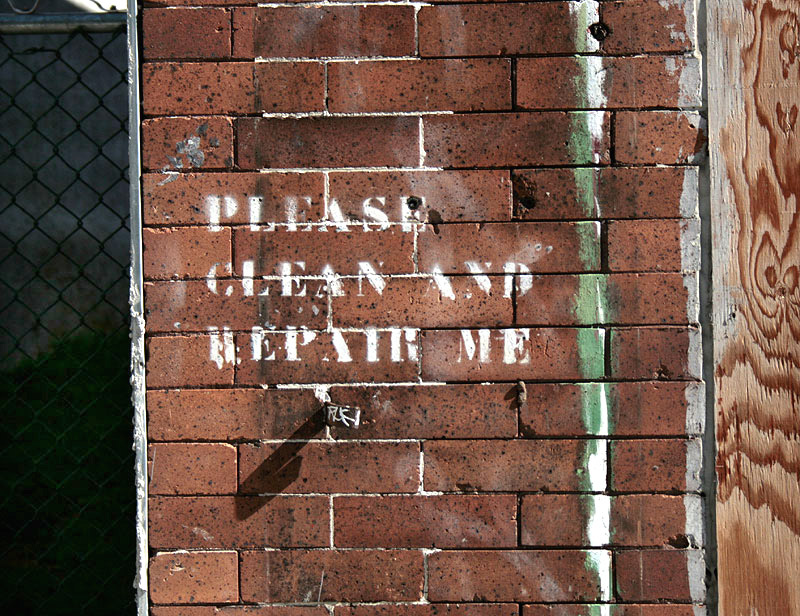Situation Vacant: Why Philadelphia Needs a Land Bank Now

Alongside PlanPhilly’s panel discussion about the city’s vacant land strategies on June 12th, Eyes on the Street is collecting and sharing stories from Community Contributors about the effects of vacancy and blight on neighborhood quality of life, community development, and the potential for positive change presented by the city’s vacant property reform efforts. Rick Sauer, Executive Director of the Philadelphia Association of Community Development Corporations, makes this case for a Philadelphia Land Bank.
The facts in Philadelphia are staggering. More than forty thousand plus vacant properties cost taxpayers $20 million per year to maintain, and are magnates for illegal activity. These properties lower the value of homes by up to 20 percent, destabilize neighborhoods, and devalue the overall property tax base the City and School District rely on by an estimated $3.6 billion. Ownership is fragmented, with four public agencies in control of more than 10,000 vacant properties, while private individuals own the remaining 30,000 vacants, 20,000 of which are long-term tax delinquent.
In 2006, Cleveland confronted a similar situation and created the Cuyahoga County Land Bank. Since then, that Land Bank has collected properties from a number of sources – bank foreclosures, federal and state agencies, even donations – and is coordinating their sale, consolidation and rehabilitation. This coordination replaces disjointed and ineffective efforts of the past.
Philadelphia can learn from the experiences of Cleveland, as well as Atlanta, Flint, Michigan and other cities, all of which have supported Land Banks as a way to remake their cities by making it easier to put vacant land back into productive reuse.
The Brookings Institution says 15 percent of all land in cities is vacant, and few cities handle those properties in a coordinated way. In Philadelphia, this lack of coordination—and the existence of different procedures in four different public agencies—have meant that only one or two percent of publicly owned vacant properties are sold each year.
Land Banks are intended to consolidate local government’s ability to deal with these properties, assembling lots if possible, and coordinating their sale for reuse. With a Land Bank, good things can happen: homeowners can get side yards to replace weed-filled lots; community development groups can create new housing or green space; local businesses can expand next door; and for-profit developers can build commercial or residential developments more quickly.
Philadelphia is moving in the right direction. Just last month, the City opened its “Front Door” to make it easier to see surplus properties held by three city agencies (although not the Philadelphia Housing Authority) on a map, along with related property information. This “Front Door” allows a user to express interest in a property and track the progress of its disposition on-line. In addition, the City has developed a written disposition policy, and begun more aggressive code enforcement to hold owners accountable for maintaining vacant properties.
That’s a great beginning. But a Land Bank goes beyond that. It would consolidate the now fragmented ownership of properties in one entity, starting with the 10,000 plus publicly-owned properties. It could also strategically acquire vacant privately-owned tax delinquent properties to facilitate their reuse by responsible new owners, instead of going to the highest bidder regardless of track record or plans. And it would facilitate assembly of sites that could support larger-scale development – now a formidable task.
A Land Bank is not magic, but it can be an effective tool to balance attracting market-rate development with addressing lower-income resident and community priorities such as affordable housing, community facilities and open space. A Land Bank is the logical and necessary next step for the City of Philadelphia to facilitate the appropriate reuse of that most valuable urban asset – available land.
———
Rick Sauer is Executive Director of the Philadelphia Association of Community Development Corporations, which is leading the Campaign for a Philadelphia Land Bank 2012.
Eyes on the Street is collecting stories about the effects of vacancy on neighborhood quality of life and community development in Philadelphia. If you want to share your story, send it our way.
WHYY is your source for fact-based, in-depth journalism and information. As a nonprofit organization, we rely on financial support from readers like you. Please give today.




